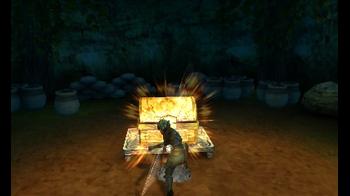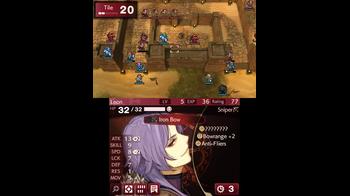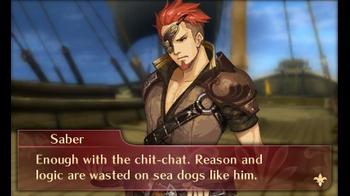
Fire Emblem Echoes: Shadows of Valentia Review
Fire Emblem has been enjoying an exceptional boon in recognition in recent years, following the high acclaim for titles like Fire Emblem: Awakening along with the recent perpetual social buzz of Fire Emblem: Heroes on mobile devices. There is a lot more Fire Emblem on the way, such as Fire Emblem Warriors and a mainline entry for the Nintendo Switch, but Fire Emblem Echoes: Shadows of Valentia is first in line - a full remake of the 2nd ever game in the series: Fire Emblem Gaiden.
Whether you were introduced to the series with Awakening or a franchise veteran, know that Echoes is a bit different, perhaps even a little weird. Intelligent Systems decided to take an experimental title from 25 years ago and rebuild it for a new generation. The result is a fresh take on an established series where IS can realize the potential they envisioned so long ago.
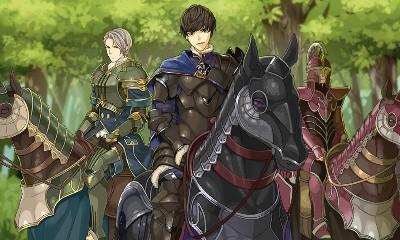
The ways in which Fire Emblem Echoes is different are pretty apparent right from the onset of the game. It follows the tale of two childhood friends, Alm and Celica, and how a war between two opposed nations shapes their lives and their destinies. Throughout the game, you organize two armies completely independently from each other, and the player progresses by following the lead characters' stories in parallel. While the game starts by toggling back and forth between the two, you eventually can control both armies in the game at will.
Moreover, the game is divided into Acts instead of Chapters, and each Act consists of numerous, usually small scale skirmishes. At the start of Act 1, you see a world map resembling the likes of Awakening or Sacred Stones, only now you can enter towns and other areas in addition to just accessing battles. Towns are explored via menu systems, where you can talk to your allies, forge weapons, and even search the area for items and weapons in a sort of 'pixel-hunt' mode. You can even take on sidequests which often reward with coins, weapons, or stat up items.
The most obvious new characteristic of Fire Emblem Echoes is that of dungeons that you can find scattered around the world. Here you control Alm or Celica from a third person perspective as you explore these 3D areas in real time.
Within dungeons you can find chests with weapons, coins used in forging, and springs that can raise stats (though they can only be used a few times). Small skirmishes are encountered by confronting the enemy models on in the dungeon, which then takes the party into the SRPG grid that Fire Emblem fans are familiar with.
More frequent, smaller scale battles are ultimately one of Echoes defining features.
When I first saw that dungeons were a part of this newest game, I was hesitant how I would take to them. This is a strategy series after all, why would I want to explore a dungeon? But after experiencing them for myself, I strongly came to appreciate how these areas mix things up just enough to be interesting. It gives the game a different sort flavor and of pace, and I'm glad Intelligent Systems decided to revisit a seemingly weird idea.
Towns and dungeons are only the first of many new elements found in Echoes. To exhaustively list all the ways in which this game is different from its brethren would lead to a pretty mundane review. It's clear that Echoes is its own thing, and you have to approach the game with an open mind to see how all these elements come together. It's a new take using old ideas, and it ultimately leads to one of the most refreshing games in the series.
Despite all these atypical Fire Emblem features, when it comes to combat Echoes is actually a little bit more streamlined than more recent titles. Because this is based on a much older game, there are fewer classes to work with and less objective variety. I don't mean that truly as a knock against the game, however, just that the focus is a little bit different.
Strategy is still obviously still at the core of the series. You need to observe what types of enemies are on the battlefield, what types of attacks they possess, what the field terrain looks like, and coordinate your units appropriately. Magic and weapons also work a little bit uniquely in Echoes - there is no weapon triangle for instance, and casting magic inflicts some self-damage - so sometimes battle situations are approached just a bit differently than what you might have done in other titles.
Despite the limited class variety, there are still some really cool strategies that come out of the units available. For example, I often used Silque's Warp technique to send a unit to a distant but dangerous foe, had the unit slay them, and then had Faye use Rescue to return my unit from harm. You can also give units different weapons & items that offer different effects, like boosting stats, increasing attack range, or offering various active skills that can be used in battle. Give Delthea a Mage Ring and watch her take on enemy casters without breaking a sweat! While different, the overall combat implementation is ultimately as satisfying as ever, and theres still enough customization to keep things compelling.
I played Fire Emblem Echoes on Hard/Classic mode, meaning enemies had heightened stats and any character death was permanent. In general, Echoes is a little bit tougher than Awakening and Fates - or at least it would be if it wasn't for Mila's Turnwheel.
This key item literally allows the player the rewind turns several times per battle, and you can rewind as far back as you want to. In any other Fire Emblem game, if a character falls in battle you basically either have to restart the skirmish or lose the character forever. This meant that any action had to be made with the potentially fatal consecquence in mind.
Here, you are essentially given mulligans with no penalty to using them - eventually up to 12 times a battle.
Want to try something a little reckless but could potentially turn the tide of battle? Maybe send a unit ahead to tank and provoke the attention of a swarm of foes? Go ahead! Try out your careless strategy and see if you get lucky. If things don't turn out in your favor, rewind and try something else. Mila's Turnwheel allows the player to take these sort of chances .. which aren't actually gambles at all because you can take it back whenever you want. The added challenge Echoes has over other games is highly mitigated by the Turnwheel.
It's definitely a convenient feature, perhaps too convenient, but it's a great way to remove a considerable amount of frustration when you make a wrong move. Not only that, but Echoes also places a few Ressurection Shrines throughout the game. While their uses are limited, they allow you to bring a character back from the dead. So, Echoes gives the player plenty of leniency with it comes to challenge, even on higher difficulties. If you are a veteran to the series, I definitely recommend playing on Hard.
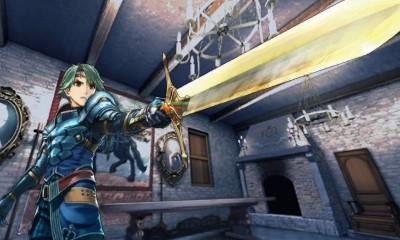
While the overarching plot beats of Fire Emblem Echoes are a bit done-before and predictable - perhaps due to conforming to a much simpler narrative of a 25-year-old game - the execution and tone of Echoes is very well done. This is bolstered tremendously by the great localization work done by the team at 8-4, along with good English voice work overall. For being the very first fully voiced title in the series, Echoes definitely sets off on the right foot here. Additionally, Alm and Celica are both endearing characters, and I was engaged in the narrative even if it was a bit typical.
Support conversations take a bit of a back seat in this one. Rather than being a matchmaker simulator like more recent titles, only characters with pre-existing relationships can build their support for each other, and all support conversations can be seen - you don't have to make any choices regarding which supports you want to work towards. Most supports are a straightforward banter between characters, with some more romantic conversations mixed in as well (including same-sex affection as well).
Many key side characters do participate regularly in the overall narrative, something that a lot of Fire Emblems struggle at, where many recruits are chess-pieces first and characters second. Any recruited character can also be spoken to in town, where most characters offer up their thoughts on the current situation or their personal backgrounds.
There are also a few Memory Prisms that can be collected during the game, which give even more detailed accounts of character histories. While you can't really "pair up" units, the mix of established support conversations, town conversations, and Memory Prisms all mix to provide a satisfying composition to the characters in the game.
The one thing I took most issue with most with Fire Emblem Echoes is the game's reliance on summoned enemies late in the game. The game introduces Cantor enemies which can spawn a random amount of minor foes every few turns. At first, I thought this was an interesting way to change things up, forcing the player to take things a little more slowly and manage a persistent flood of enemies as they progressed towards the map boss. It's a type of combat design not often seen in other titles in the series so I initially found it unexpected, but cool. However, Echoes relied on this map style a bit too much, wearing out its welcome by the time you reach the game's conclusion when most of the final stretch of the game is marked by these sorts of battles.
Another small thing that was a bit tedious was how various fortress points on the world map would spawn enemy groups to chase you if you wandered too often. If you wanted to step aside from the main story for a bit to do some subquests or dungeons, these groups would slowly but persistently attack without ceasing. I often decided to clear out the nearby forts quickly before doing sidequest content in order to prevent these foes from getting in the way.
Aside from a few odd issues, I was surprisingly impressed by this remake, and I'm glad the decision was made to revisit one of the weirdest entries in the series.
Fire Emblem Echoes: Shadows of Valentia is unlike most other game in its series and offers a fresh take on the series' usual formulas. It's an interesting mix of seemingly weird components that all come to together in a delightfully satisfying way. It may not be for everyone, but Echoes is definitely an intriguing entry in a great franchise that might be just up your alley.
